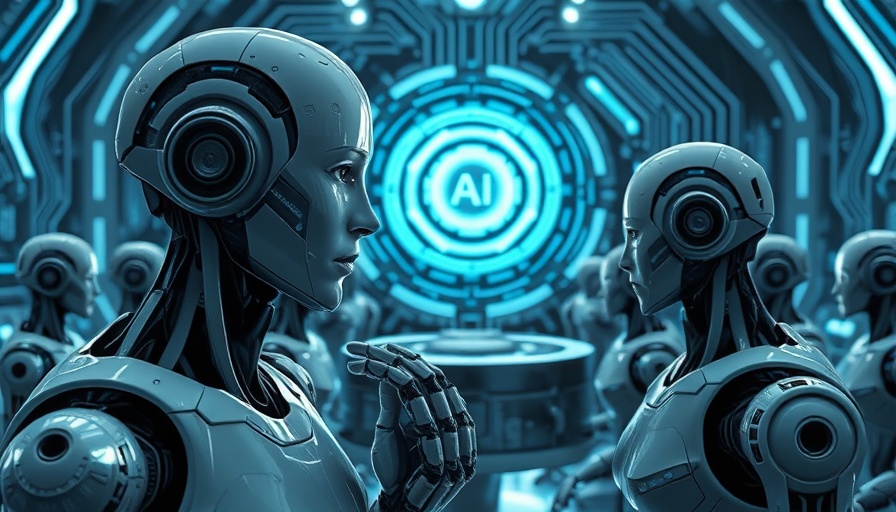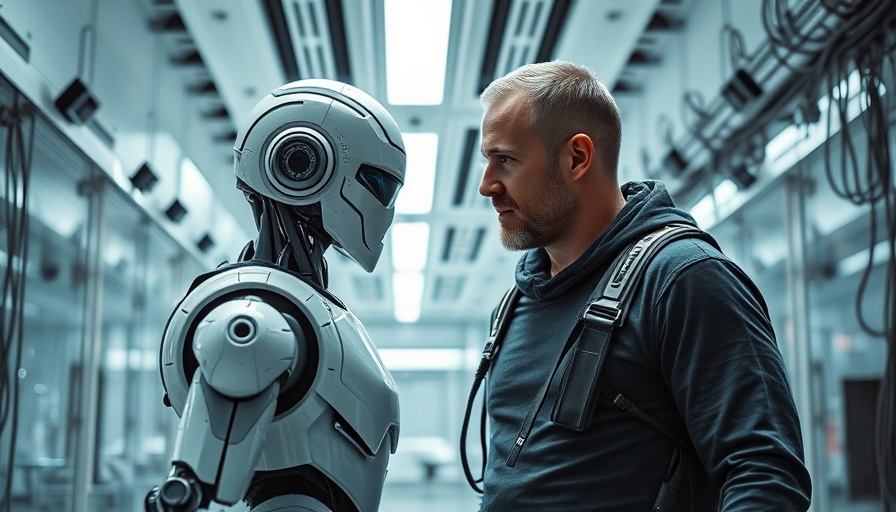
Revolutionizing Efficiency: The Choice Between Single and Multi-Agent Systems
In today's rapidly evolving technological landscape, the conversation surrounding agentic systems is reaching new heights, especially among business owners seeking to optimize their operations. A recent discussion highlights two contrasting approaches in AI architecture: single agent systems and multi-agent systems. As more enterprises delve into the capabilities of AI, understanding these methodologies becomes essential.
In 'Should You Build Single Agents or Multi Agent Systems?', the discussion dives into contrasting architectures for AI agents, exploring insights that sparked deeper analysis on our end.
The Case for Multi-Agent Systems
The argument for multi-agent systems is strongly supported by Anthropic, who published an insightful document detailing their framework. Their multi-agent research system boasts a central orchestrator that configures various sub-agents to tackle segmented subtasks dynamically. This architecture is beneficial for complex research tasks that require an autonomous approach, running multiple operations in parallel to optimize speed and efficiency.
Anthropic's research agent system shows how a lead agent collaborates with several specialized sub-agents tasked with gathering extensive data. For instance, if tasked with finding a list of board members across S&P 500 companies, each sub-agent could focus on a different company, vastly accelerating the process. Their findings suggest that multi-agent systems can outperform single agents significantly, handling over 90% of tasks more efficiently due to effective resource allocation and parallel processing.
Risks of Multi-Agent Systems: The Opposing Viewpoint
In contrast, the Cognition team presents a counter-argument. They advocate for single-agent systems, contending that multi-agent systems can introduce fragility. Their framework, which they call a linear handoff design, emphasizes sequential processing over parallel operations. The downside of multi-agent setups, they suggest, is the risk of context loss among agents, leading to miscommunication and unexpected results.
For example, when coding tasks like creating a game, individual actions could conflict if agents are unaware of each other's progress or objectives. The authors stress the importance of context engineering—ensuring that every agent maintains awareness of prior discussions and actions—underscoring that fragmented communication can lead to flawed outputs.
Context is King: Why Your Use Case Matters
The discussion between these two approaches reveals a crucial takeaway: context is paramount in choosing the right system. For business owners evaluating AI implementations, understanding whether their tasks are dependent or can operate independently is key to deciding which framework to adopt. Multi-agent systems shine in independent workflows that can leverage parallelization, like research. In contrast, single-agent systems may excel in scenarios that demand a cohesive understanding of continually developing requirements.
Future Insights: Navigating the Evolving AI Landscape
Looking ahead, both perspectives suggest a fascinating landscape for AI development. While the Cognition team remains cautious about the current limitations of multi-agent systems, they express optimism for increased collaboration and functionality as AI technologies mature. The rapid pace of innovations in this space suggests that both single and multi-agent systems might not only coexist but evolve to be more robust and interconnected in the future.
Decisions You Can Make With This Information
Understanding the strengths and weaknesses of these agent systems provides business owners with critical insights. Those engaged in heavy parallel workflows might find that investing in a multi-agent structure could yield substantial returns in efficiency and task management. On the other hand, businesses focused on nuanced, interconnected tasks might prioritize context-driven single-agent architectures.
Ultimately, the choice between single and multi-agent systems hinges on the specific needs of an organization. Employing AI tools today means adapting to emerging insights and trends from ongoing research. As technologies develop, the flexibility to switch between these systems as per operational demands will likely become a competitive advantage.
Start Using AI Now: Embrace the Future
As we navigate these compelling systems, it's essential for business owners to dive in and explore how AI can enhance their operations. The ongoing evolution in AI techniques promises exciting opportunities to boost productivity and innovation within your business.
 Add Row
Add Row  Add
Add 




Write A Comment